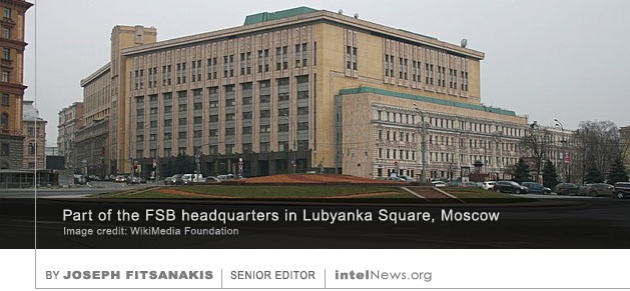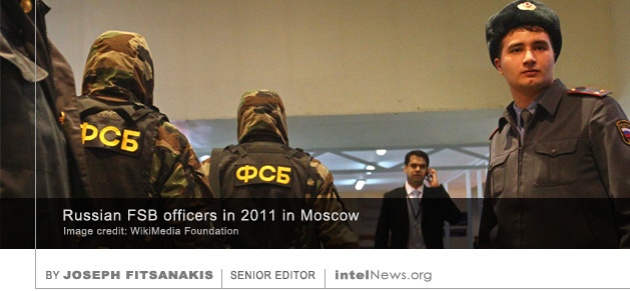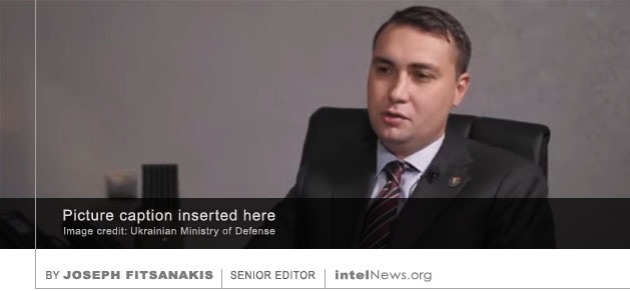Germany charges two with ‘high treason’ for spying for Russia
September 12, 2023 Leave a comment
 GERMANY HAS CHARGED TWO men, among them a German intelligence officer, with spying for Russia, in a case that has shocked German public opinion and alarmed Germany’s allies. The two men have been identified only as “Carsten L.” and “Arthur E.”, in compliance with Germany’s privacy laws. Carsten L. is accused of having provided the Russian Federal Security Service (FSB) with intelligence about the Russo-Ukrainian war, in return for nearly $500,000. Arthur E. is believed to have been Carsten L.’s accomplice and to have acted as an intermediate between him and his Russian handlers.
GERMANY HAS CHARGED TWO men, among them a German intelligence officer, with spying for Russia, in a case that has shocked German public opinion and alarmed Germany’s allies. The two men have been identified only as “Carsten L.” and “Arthur E.”, in compliance with Germany’s privacy laws. Carsten L. is accused of having provided the Russian Federal Security Service (FSB) with intelligence about the Russo-Ukrainian war, in return for nearly $500,000. Arthur E. is believed to have been Carsten L.’s accomplice and to have acted as an intermediate between him and his Russian handlers.
The German prosecutor general has charged both men with “high treason in a particularly serious case”. However, there is no public information about the timeline of Carsten L.’s recruitment by the FSB and his espionage for the Russians. He reportedly met his accomplice, Arthur E., a Russian-born German diamond trader, in Bavaria in 2021. After being recruited by Carsten L., Arthur E. is believed to have traveled frequently between Germany and Russia. During those trips, he is thought to have met with FSB officers in order to provide them with intelligence and receive payments.
When they announced the arrests of the two men back in January of this year, German officials said they had been tipped by a foreign intelligence agency. The foreign intelligence agency had allegedly found a document from the BND’s internal files in the possession of an unnamed Russian spy agency. However, the identity of the intelligence agency that provided the tip to the Germans is among several important details about this case that remain unknown for the time being. Among them are the estimated duration of Carsten L.’s alleged espionage for Moscow, the damage he caused to German intelligence, as well as his motives for spying for the FSB.
► Author: Joseph Fitsanakis | Date: 12 September 2023 | Permalink
 AN INVESTIGATIVE REPORT BY the Wall Street Journal discusses a little-known Russian counterintelligence unit that targets foreign diplomats in ways that often “blur the lines between spycraft and harassment”. Among other activities, this secretive unit is likely behind a string of operations targeting American citizens, which have led to the arrest of at least three of them since 2018. These include the Wall Street Journal correspondent Evan Gershkovich, who earlier this year became the first American reporter to be held in Russia on espionage charges since the Cold War.
AN INVESTIGATIVE REPORT BY the Wall Street Journal discusses a little-known Russian counterintelligence unit that targets foreign diplomats in ways that often “blur the lines between spycraft and harassment”. Among other activities, this secretive unit is likely behind a string of operations targeting American citizens, which have led to the arrest of at least three of them since 2018. These include the Wall Street Journal correspondent Evan Gershkovich, who earlier this year became the first American reporter to be held in Russia on espionage charges since the Cold War. RUSSIAN OFFICIALS SAID THEY uncovered a sophisticated espionage effort by the United States government, which targeted the smartphones of thousands of Apple users living in Russia, including foreign diplomats. According to the Russians, the operation was carried out by the National Security Agency (NSA), an American intelligence agency that specializes in gathering foreign signals intelligence and securing the United States government’s information and communication systems.
RUSSIAN OFFICIALS SAID THEY uncovered a sophisticated espionage effort by the United States government, which targeted the smartphones of thousands of Apple users living in Russia, including foreign diplomats. According to the Russians, the operation was carried out by the National Security Agency (NSA), an American intelligence agency that specializes in gathering foreign signals intelligence and securing the United States government’s information and communication systems. A BRUSSELS-BASED NEWSPAPER has publicized the names and backgrounds of nearly two dozen Russian diplomats, who were recently expelled by the Belgian government on suspicion of espionage. A total of 21 Russian diplomats were expelled from Belgium in April, in co-ordination with dozens of European governments. The move was part of a broader European wave of diplomatic expulsions of Russian diplomatic personnel, in response to the Russian invasion of Ukraine.
A BRUSSELS-BASED NEWSPAPER has publicized the names and backgrounds of nearly two dozen Russian diplomats, who were recently expelled by the Belgian government on suspicion of espionage. A total of 21 Russian diplomats were expelled from Belgium in April, in co-ordination with dozens of European governments. The move was part of a broader European wave of diplomatic expulsions of Russian diplomatic personnel, in response to the Russian invasion of Ukraine. diplomats are expelled in a possible tit-for-tat move by an adversary. It is therefore highly unusual for information concerning expelled diplomatic personnel to be made public. And yet that is precisely what happened earlier this week, when the EUObserver, an English language newspaper based in Brussels, published
diplomats are expelled in a possible tit-for-tat move by an adversary. It is therefore highly unusual for information concerning expelled diplomatic personnel to be made public. And yet that is precisely what happened earlier this week, when the EUObserver, an English language newspaper based in Brussels, published  EUObserver said that some of the information about the alleged spies was unearthed by The Dossier Center, a British-based open-source information outlet, which is similar to Bellingcat. The Dossier Center is funded by the oligarch Mikhail Khodorkovsky, who is a critic of the Russian President Vladimir Putin.
EUObserver said that some of the information about the alleged spies was unearthed by The Dossier Center, a British-based open-source information outlet, which is similar to Bellingcat. The Dossier Center is funded by the oligarch Mikhail Khodorkovsky, who is a critic of the Russian President Vladimir Putin.  More than 150 officers have been purged form the ranks of Russia’s Federal Security Service (FSB), as President Vladimir Putin is placing blame on his intelligence agencies for the setbacks experienced during the invasion of Ukraine. This assessment was communicated to the London-based Times newspaper by British intelligence sources, who added that many of those purged have been dismissed from the service, while others remain under house arrest. A few —among them senior FSB officials— are in prison. The FSB is tasked with domestic security and counterintelligence operations, which were carried out by the KGB during the Cold War.
More than 150 officers have been purged form the ranks of Russia’s Federal Security Service (FSB), as President Vladimir Putin is placing blame on his intelligence agencies for the setbacks experienced during the invasion of Ukraine. This assessment was communicated to the London-based Times newspaper by British intelligence sources, who added that many of those purged have been dismissed from the service, while others remain under house arrest. A few —among them senior FSB officials— are in prison. The FSB is tasked with domestic security and counterintelligence operations, which were carried out by the KGB during the Cold War. UKRAINE’S MILITARY INTELLIGENCE AGENCY has published a list that contains the names, addresses and passport numbers of 600 Russians, who it alleges are employees of the Russian Federal Security Service (FSB). The FSB is Russia’s domestic security and counterintelligence agency, but its personnel also operate in former Soviet republics, including Ukraine. It has been
UKRAINE’S MILITARY INTELLIGENCE AGENCY has published a list that contains the names, addresses and passport numbers of 600 Russians, who it alleges are employees of the Russian Federal Security Service (FSB). The FSB is Russia’s domestic security and counterintelligence agency, but its personnel also operate in former Soviet republics, including Ukraine. It has been  A REPORT BY AN anonymous Russian intelligence analyst alleges that the Russian forces in Ukraine could have suffered as many as 10,000 casualties, and claims that the Kremlin has lost contact with a number of divisions. The claims are included in a 2,000-word document published online by Vladimir Osechkin, a Russian anti-corruption activist and vocal critic of the Kremlin, who has been living in France since 2015. In the past, Osechkin has collaborated with the investigative website Bellingcat.
A REPORT BY AN anonymous Russian intelligence analyst alleges that the Russian forces in Ukraine could have suffered as many as 10,000 casualties, and claims that the Kremlin has lost contact with a number of divisions. The claims are included in a 2,000-word document published online by Vladimir Osechkin, a Russian anti-corruption activist and vocal critic of the Kremlin, who has been living in France since 2015. In the past, Osechkin has collaborated with the investigative website Bellingcat.
 Russia’s security service has arrested the media advisor to the director of the country’s space agency, accusing him of supplying military secrets to a spy agency of an unnamed Western country. The Russian Federal Security Service (FSB)
Russia’s security service has arrested the media advisor to the director of the country’s space agency, accusing him of supplying military secrets to a spy agency of an unnamed Western country. The Russian Federal Security Service (FSB)  A rare three-way spy-swap has reportedly taken place between Russia and two North Atlantic Treaty Organization (NATO) members, Lithuania and Norway. Rumors of a possible exchange of imprisoned spies between the three countries first
A rare three-way spy-swap has reportedly taken place between Russia and two North Atlantic Treaty Organization (NATO) members, Lithuania and Norway. Rumors of a possible exchange of imprisoned spies between the three countries first  Russian hackers hijacked an Iranian cyber espionage group and used its infrastructure to launch attacks, hoping that their victims would blame Iran, according to British and American intelligence officials. The information,
Russian hackers hijacked an Iranian cyber espionage group and used its infrastructure to launch attacks, hoping that their victims would blame Iran, according to British and American intelligence officials. The information,  The Russian government is preparing to swap a number of imprisoned spies with at least two member states of the North Atlantic Treaty Organization (NATO), according to reports. The Estonia-based news agency BNS, which is the largest news agency in the Baltics,
The Russian government is preparing to swap a number of imprisoned spies with at least two member states of the North Atlantic Treaty Organization (NATO), according to reports. The Estonia-based news agency BNS, which is the largest news agency in the Baltics, 






